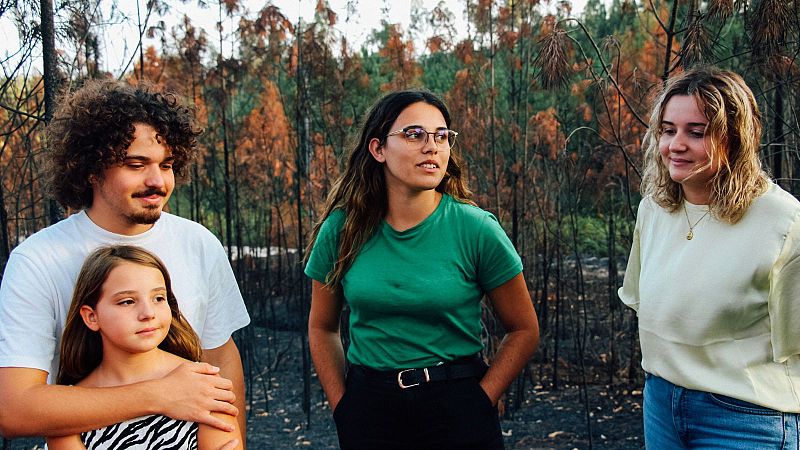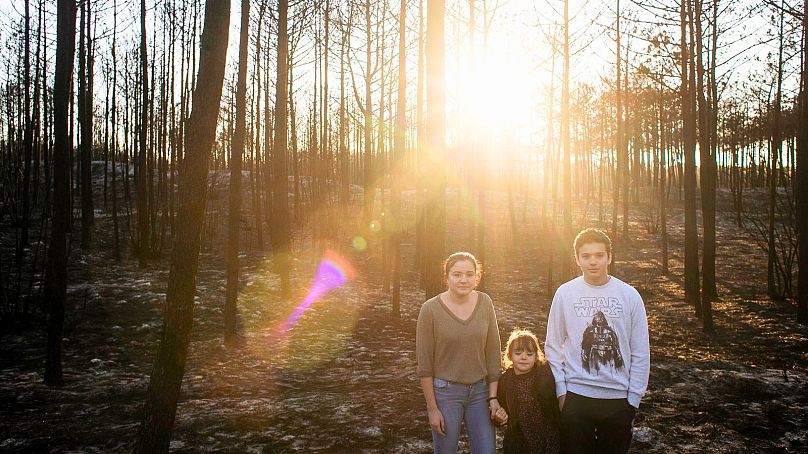
Four young Portuguese people who fought a landmark claim at the European Court of Human Rights are bringing a climate lawsuit against their own government.
The youth have joined Portuguese youth-led association Último Recurso to file a legal challenge that they hope will force Portugal to set tougher targets to cut greenhouse gas emissions and to lay out long-term plans for carbon neutrality.
The announcement comes a year after the European Court of Human Rights ruled that Switzerland must do more to cut its emissions. The judgment in favour of a group of older Swiss women known as the KlimaSeniorinnen set a precedent that government inaction on climate change violates fundamental human rights.
On the same day in 2024 the court threw out two other climate cases. One was brought against 32 European countries by a group of six young Portuguese people who argued that government inaction on climate change discriminates against them and poses a tangible risk to their lives and health.
The court did not accept their claim because they had not gone through their national court system before escalating it to the regional level, and because the other countries were not considered to have any legal obligations to the Portuguese youth.
Young people determined to carry on fight
They are now hoping to fulfill the first requirement. “We are as determined as ever to continue our fight for a liveable future,” says Cláudia Duarte Agostinho, who is now 25, and is the oldest of the original group of claimants. She will be joined by her siblings Martim (22) and Mariana (13), as well as Catarina dos Santos Mota (24).
“We are pleased to join forces with this courageous group that has shown great commitment to stronger climate action,” says Mariana Gomes, founder of Último Recurso. “Their determination reflects the same values that drive Último Recurso - the urgent need to hold wrongdoers accountable for the damage they cause to our future.”

Portugal’s climate law and national energy plans commit it to cutting greenhouse gas emissions by 55 per cent by 2030, compared with 2005. However, analysis by Climate Analytics found this target is not enough to keep average global warming under the 1.5ºC threshold in the Paris Agreement.
“Strong climate targets must be a priority for all, and we want Portugal to lead by example in tackling this crisis head-on,” says Gomes.
The Portuguese government has been approached for comment.
A new chapter in an eight-year legal battle
Gerry Liston is a senior lawyer at Global Legal Action Network, which supported the young people in their lawsuit at European Court of Human Rights and is continuing to help with the domestic case.
“By joining forces with Último Recurso, this group are beginning a new chapter in their now eight-year legal battle for urgent climate action,” he tells Euronews Green. “Their determination is heroic and should inspire others to join the fight for a habitable planet.”
Último Recurso previously filed the first climate lawsuit against Portugal together with NGOs Quercus and Sciaena, which challenged the government for not complying with its own climate law. Judges did not initially want to accept the case but the Supreme Court said it was valid, and it has been sent back to the lower courts for a new hearing.
Liston says the new case would rely heavily on the KlimaSeniorinnen ruling and the evidence and arguments previously advanced before the European Court of Human Rights. He expects the case to be formally filed in the summer.
Even if they succeed, however, implementing a judgment is not straightforward. Switzerland has pushed back against the European Court of Human Rights’ ruling and was recently ordered by the Council of Europe to do more to comply with it.
As well as prompting the government into action, Último Recurso hopes that litigation will help spark debate in Portugal to help design fairer climate policies that protect present and future generations of citizens.







